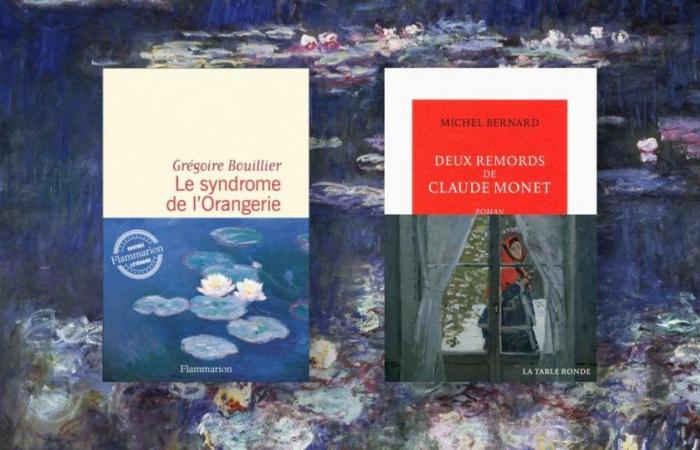EXCLUSIVE – Grégoire Bouillier has just published a novel, “Le Syndrome de l’Orangerie”, which presents itself as a personal investigation into Monet’s Water Lilies. The writer Michel Bernard, author of “Deux remorses de Claude Monet”, published in 2016, noted disturbing similarities with his own in the work.
Making Claude Monet a character in a novel is a challenge. The biography of this hard worker, modest and secretive, fleeing the turbulence of history, hating worldliness and publicity, attached to his family, his home and his garden, is thin on adventures. Yet the man fascinates. His works, rare on the market, reach astronomical sums, and his property in Giverny, bequeathed by his son Michel to the Institut de France, sees international crowds parade. In its chrome-yellow dining room of sumptuous simplicity, who has not dreamed of pulling up a chair, of sitting down in front of one of those famous blue-edged porcelain plates, of tasting the Burgundy in that winemaker’s glass, while on the table the cook would serve in her pot the seven-hour leg of lamb simmered according to the recipe of the master of the house?
What the museum regulations forbid, the writer can do, before taking his reader to breathe in front of the iris benches and under the clusters of wisteria on the Japanese bridge, chatting with Mirbeau, Berthe Morisot, Caillebotte, Bonnard, Jean Renoir or Sacha Guitry. But after having entertained this good reader, what can we tell him? You have to take him into the first studio, the room where Monet kept his intimate paintings, images of a life, contemplate them, be interested in what they represent, in the circumstances surrounding their creation and in the reasons why the painter kept them close to him. Feeling admired, loved, they start to talk.
I had stated, without having proof, to underline the painter’s tenacious loyalty to the memory of loved ones who had passed away, that he had demanded that “Women in the Garden” be installed at the Louvre. The author of “Syndrome” did the same. Perhaps he had found a source verifying the fruit of my imagination?
Collecting their confidences is what I tried to do in Two remorse by Claude Monet (The Round Table, 2016). Grégoire Bouillier has just taken his turn at this in Orangerie syndrome (Flammarion), while portraying himself, a trademark, it seems, in the midst of “his investigation” and “his discoveries”. For a month, he has been able to present them with satisfaction almost everywhere in the press of this literary season.
This article is reserved for subscribers. You have 66% left to discover.
Flash Sale
€1.99 per month for 6 months. No commitment.
Already subscribed? Log in






